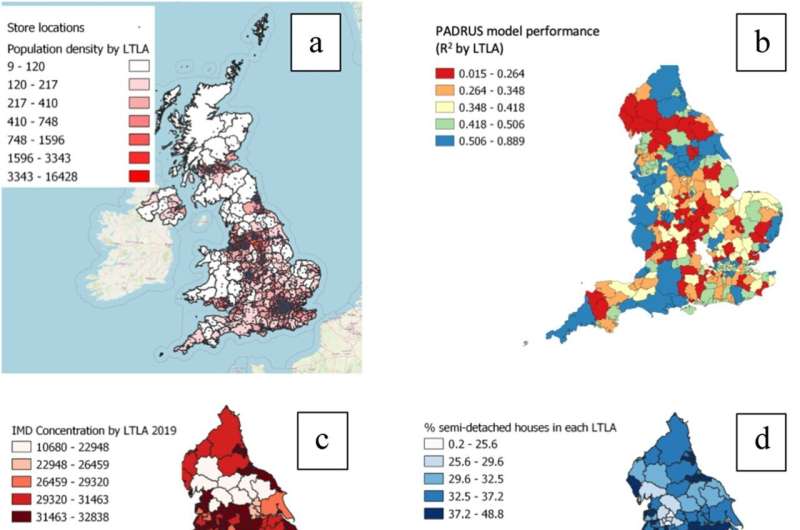This article has been reviewed according to Science X's editorial process and policies. Editors have highlighted the following attributes while ensuring the content's credibility:
fact-checked
peer-reviewed publication
trusted source
proofread
New research could predict deaths based on shopping habits

Research from Nottingham University Business School is one step closer to helping to predict deaths from respiratory diseases by analyzing the shopping habits of customers in local authority areas across England.
The research, published in Nature Communications, explored the connection between the purchase of non-prescription medications, from cough remedies to pain relief, that are used to treat respiratory illnesses, and registered deaths from those diseases.
Looking at more than 2 billion records of sales from March 2016 to March 2020, supplied by a U.K. high street retailer, researchers at the University of Nottingham, led by Elizabeth Dolan and Dr. James Goulding at NUBS, used Artificial Intelligence (AI) to predict the deaths in 314 local authority areas across England.
The team found that in using the shopping data from local authority areas, predictions were often a lot more accurate than models that relied primarily on seasonal trends and sociodemographic factors such as poverty, housing quality, age and size of population.
Additionally, academics found that they could accurately predict deaths from respiratory diseases more than 17 days in advance using the data they analyzed.
Using these findings, it is hoped that future developments in this area could help identify those most at risk of death from respiratory conditions, support the NHS and help highlight the most at-risk communities and environmental changes that could exacerbate chronic lung conditions.
Dolan, a Ph.D. candidate at the Horizon CDT and a member of Nottingham University Business School, said, "Our research shows that using sales data, such as rising cough medicine purchases, significantly improves predictions of deaths from respiratory disease. This highlights the urgent need to make this practical data source more accessible for medical research.
"It could provide health care providers an invaluable tool to better manage services and plan more effectively, especially as we now have COVID-19 to cope with alongside the other causes of respiratory disease."
More information: Elizabeth Dolan et al, Assessing the value of integrating national longitudinal shopping data into respiratory disease forecasting models, Nature Communications (2023). DOI: 10.1038/s41467-023-42776-4



















